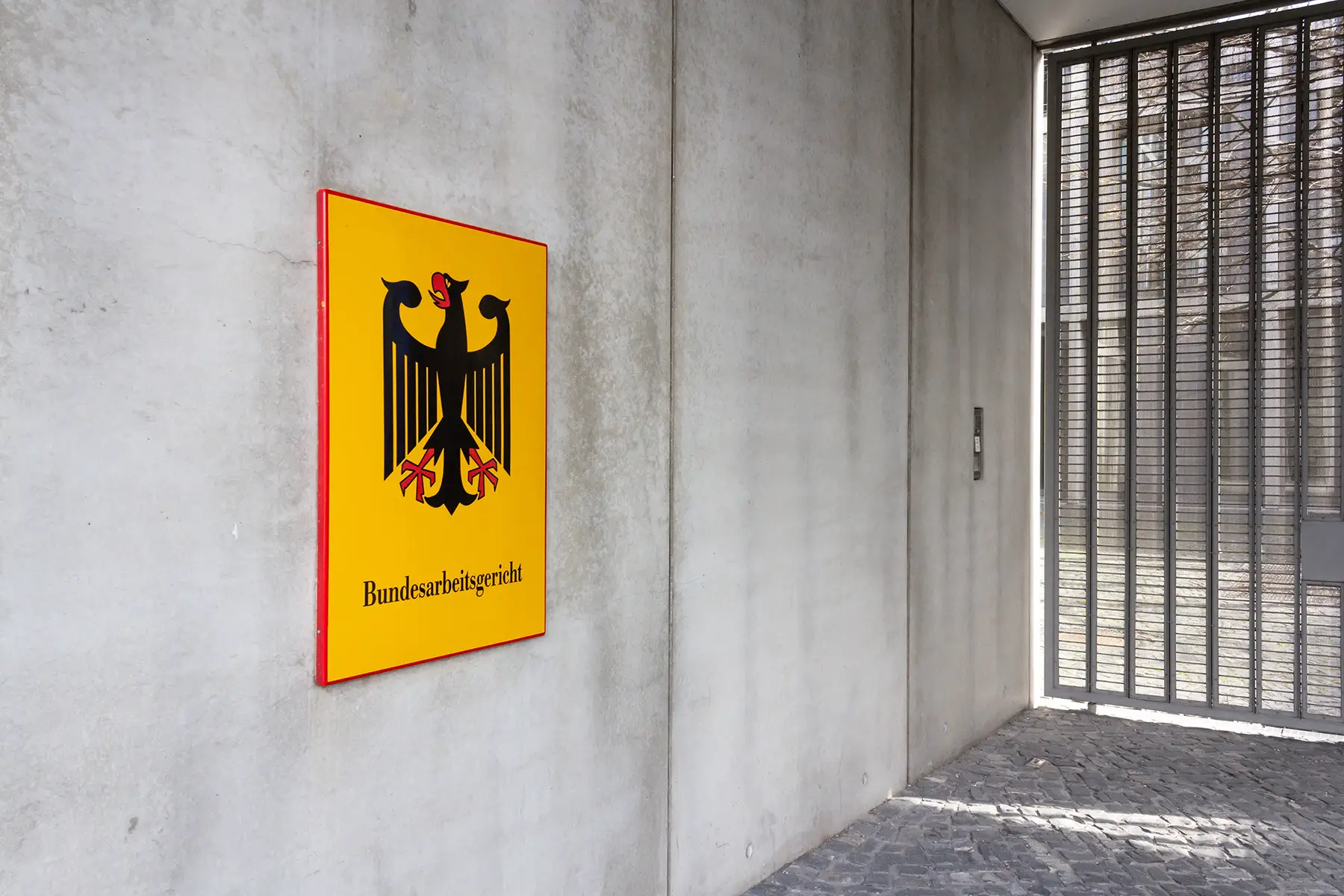As of 2020, 12.9% of the population in Germany is foreign-born. That is a significant chunk. But what’s life really like to live in Germany? In bureaucrazy Germany, the stereotypes of Europe’s engine room may ring true, on the surface. Everything runs like clockwork, mostly. And the standard of living is high. However, like anywhere else in the world you do need to prepare yourself to deal with a variety of new challenges. Having said that, expats in Germany will find that the country is a wonderful place to make a home.
From the rule of law to German culture, this article explores life in Europe’s largest economy. Topics covered below include:
- What is it really like to live in Germany?
- Can I afford expat life in Germany?
- Can expats in Germany find love easily?
- What’s it like to work in Germany?
- Can expats in Germany afford a home?
- What’s it like being a woman in Germany?
- What’s it like raising kids in Germany?
- What can expats in Germany expect from the healthcare system?
- What’s the worst thing about living in Germany?
- What’s the best thing about living in Germany?
Wundertax
Rethink the way you do your tax returns with Wundertax. Their easy-to-use website guides expats through every step of the German tax return process, giving you more time to explore your new home. For simple and intuitive help in English, use Wundertax for your tax returns.
What is it really like to live in Germany?
It’s fair to say that Germans do not enjoy a reputation for being warm and friendly. And expats twig to this immediately, citing locals’ unfriendliness towards foreigners as a significant challenge, according to a 2018 survey. In fact, HSBC’s Expat Explorer 2021 league table, based on a survey of over 20,000 expats in 46 countries, ranks Germany 27th overall.
What Germany does have is an excellent reputation as a place to do business, a strong economy, good jobs for expats, and tolerance towards migrants. After all, it was Angela Merkel who challenged her countrymen and the rest of Europe to accept refugees and migrants. In 2015, she declared: ‘Wir schaffen das‘ (We will manage this/we can do it).

If you could understand that phrase without referring to the translation in brackets, you’ll have a great time in Germany. Learning German means you will be better able to enjoy the country’s culture and history.
Expats in Germany will discover that although the country is a global economic powerhouse, it isn’t quite as international when it comes to language – even in major cities. From navigating local bureaucracy to getting the most out of life in Deutschland, speaking German will improve your everyday life and your career prospects.
Can I afford expat life in Germany?
Expats in Germany can enjoy a high standard of living. The country boasts excellent public transport, healthcare, and education systems. Germany ranks above average in the OECD Better Life Index in terms of quality of life and well-being. In addition, German cities can be significantly cheaper to live in than other major European cities.
In fact, Mercer’s Cost of Living city ranking for 2021 shows that the German metros of Frankfurt, Munich, and Berlin are cheaper than Paris, London, and Rome. However, prices have risen due to the COVID-19 pandemic. As a result, the four major cities, including Düsseldorf, all rose more than 20 places in Mercer’s ranking.
To give you a sense of what your living expenses are likely to be, German household expenses averaged €2,507 per month in 2020. This is according to Federal Statistics Office data. Housing, energy, and maintenance account for €923 of that total. Another €387 goes towards groceries, €325 to transport costs, and €341 for entertainment and leisure each month.

Germany also boasts salaries that compare well with the rest of Europe. In 2021, the average hourly wage in Germany was €24.44 for a monthly gross of €4,130. As of January 2022, Germany’s minimum wage is €9.82 per hour, so a 40-hour workweek adds up to a gross monthly salary of about €1,704. However, the government has indicated a rise to €12 in late 2022. That works out to a minimum monthly salary of about €2,083. This compares well with most European countries.
The country categorizes people with an income of less than €14,109 per year as being at risk of poverty. That’s around 18,5% of the population.
The cost of living for expats in Germany
How does the cost of living in Germany compare internationally? Consumer prices in Germany are about 8.49% lower than in the US (without rent) and about 20.9% lower including rent, according to Numbeo’s Cost of Living Comparison in 2022. Restaurant and grocery prices are also lower in Germany than in the US. Though US residents enjoy greater purchasing power (3.38%).
Whether you choose to rent or buy in Germany, be aware that demand for homes has increased as a result of the COVID-19 pandemic. House prices soared 10% in 2021. As with other parts of the world, where you choose to live will impact the prices you will pay. Keep that in mind, whether you are renting in Munich and Berlin or getting a mortgage to buy in Düsseldorf. Having said that, German property is relatively expensive in comparison to those in many other European countries. For example, the average bid price for an existing dwelling in Germany is €3,400 per square meter. This is more than Spain (€1,694), Poland (€1,729), Czechia (€2,566), Denmark (€2,847), and France (€3,372).
Can expats in Germany find love easily?
Dating in Germany can present some challenges for expats. The Germans can be very direct, but they flirt very subtly and can be shy when it comes to romance. In fact, about 36% of German men said shyness prevented them from finding a partner, according to a 2008 survey by online dating site Parship. That’s 10% higher than the EU average. So, expect a German to take their time to warm up. And look for an open and friendly smile, one of the most preferred methods of flirting and being flirted with.

It’s worth keeping in mind that Germans are increasingly open to dating expats. The Local reports that German-foreign partnerships have more than doubled over the past two decades. In 2017, 1.5 million German-foreign couples were living together. Of these, 1.2 million were married – including same-sex unions.
Of course, navigating any relationship can be tricky and will come with its fair share of ups and downs. Expats dating Germans may have to learn to accept – if not love – speedos, sauerkraut, and the penchant for pranks on your wedding day.
If that sounds like your idea of paradise, dating apps are a great place to begin looking for love. But be warned: Germans have been slow to embrace digital technologies, so older and more traditional routes could be the way forward.
LGBTQ+ relationships in Germany
Same-sex and LGBTQ+ relationships are both common and accepted across Germany. Gay marriage has been legal since 2017. The country has a thriving LGBTQ+ dating scene, particularly in the major cities. As in most other countries, LGBTQ+ couples will find it easier to connect with like-minded partners on internet apps.
What’s it like to work in Germany?
There’ll likely be fewer jokes in the office, but at least you’ll be able to leave work behind when you leave for the day. Expats in Germany will find that work is work, and your social life is your social life. The twain may never meet. And don’t expect your German colleagues to break for a spontaneous coffee.
International workers often butt heads against a business culture replete with hierarchical structures, overtly direct colleagues, and perfectionist employers. However, globalization and more than two decades of freedom of movement within the EU have seen a relaxation in attitudes.
Germany has a foreign-born labor force of 7.8 million, OECD data indicates. That’s one of the highest rates of foreign workers in the world. The majority of these are skilled workers from other EU/EEA countries and nationals of some Western Balkan states.

Many expats are attracted to Germany’s higher standard of living as well as its healthy work-life balance. While the country consistently ranks as one of the world’s most productive, the German Federal Statistics Office (Deutsche Statistisches Bundesamte) says Germans work fewer hours than many of their European and OECD peers. In 2019, full-time employees worked 41.0 hours per week and part-time employees 19.5 hours per week, for an average of 34.8 hours. By contrast, the EU average is 37 hours.
Overall, Germany also has one of the lowest unemployment rates in the EU, at 3.4% in September 2021. By comparison, the EU averaged 6.7% in November 2021.
Getting a work visa in Germany
People from countries outside the EU/EEA looking to secure a work visa in Germany could find it challenging if they are in fields outside the in-demand IT and healthcare sectors. Interest in hiring skilled foreign workers remains high, the Federal Office for Migration and Refugees (Bundesamtes für Migration und Flüchtling – BAMF) says. However, restrictions linked to COVID-19 are slowing immigration from outside the EU.
Indeed, the pandemic has made it harder to recruit overseas workers. However, remote jobs are gaining favor with businesses and the state. This can open up opportunities for expats currently in Germany.
Finally, good German language skills will work in your favor when it comes to getting a job in Germany.
Salaries and taxes for expats in Germany
Expats in Germany should know their rights in terms of wages and contracts. As mentioned above, you can expect a minimum wage of €9.82 per hour. This means a 40-hour workweek adds up to a gross monthly salary of about €1,704. However, the government has indicated a rise to €12 in late 2022. That works out to a minimum pre-tax monthly salary of about €2,083.
Of course, there are exclusions. For example, this minimum wage does not apply to interns and apprentices, nor does it apply to workers taking part in job promotion schemes. Also excluded, at least for the first six months of their return to work, are those classified as long-term unemployed (Langzeitarbeitslose).
Having said that, most expats will likely earn more than minimum wage. According to a 2021 salary report, medicine and finance are the top-paying professions (in German). Average salaries range from €73,000 to over €89,000 per year. Engineers, IT specialists, corporate consultants, and marketing/PR professionals can also expect high wages – earning upwards of €60,000. Of course, those with leadership roles can earn 14% more.
High tax rates for high-earning expats
All German residents must pay tax on income from domestic and international sources – regardless of expat status. As of 2021, the highest tax rate is 45%. However, the top tax rate in Germany for most professionals is 42%. That is if you earn €57,000–€274,000. In addition, nine out of 10 people who submit a tax return in Germany receive a refund, according to the Federal Statistics Office. Services such as Taxfix can help you to file your taxes quickly and easily.
Keep in mind that church taxes (Kirchensteuer) of up to 9% are optional.
Finally, expats who live and work in Germany for at least five years are eligible for a state pension. Of course, you can also contribute to a private pension during your working life. As of 2022, the country’s pensionable age can vary. This depends on:
- Your year of birth
- Duration of contributions to a pension plan
- Level of disability (if any)
As such, you could be eligible for a full pension from age 60, 63, or 67.
Can expats in Germany afford a home?
Home prices all over the world skyrocketed in the wake of the COVID-19 pandemic. As a result, Germany’s state bank (Bundesbank) estimates that property may be overvalued by 10% to 30%. Further, almost 90% of households expect prices to keep increasing. However, do keep in mind the bank’s concern. The average home has increased in price by 162% since 2010.

In 2021, the average sales price of single-family and duplex houses in Germany’s biggest cities varied between approximately €5,000 and €9,800 per square meter. In terms of housing, Munich is the most expensive city in the country.
Overall, just 45% of households own their home. This is the second-lowest rate of homeownership in the OECD, a significantly lower percentage than in France, the US, or the United Kingdom. Only Switzerland fares worse.
Getting a mortgage in Germany isn’t too difficult for expats. They can get a loan for up to 80% of the assessed value of a property they want to buy. Non-resident foreign buyers are limited to 60% finance.
When it comes to renting, Munich’s prices soar above other German cities. The average rent is just over €18 per square meter (2022). Meanwhile, other cities range from just under €12 to around €14. In most cities, it’s more cost-effective to rent than to buy.
If you’re looking for a place to rent, the following property portals can assist your search:
What’s it like being a woman in Germany?
Germany has been slower to strengthen women’s rights than, for example, the US. Germany criminalized marital rape in 1997, four years after the US. The same year, laws were changed to cover gender-neutral language and recognize the effect of psychological coercion. Before the sexual offenses law (Sexualstrafrecht) was reformed in 2016, German women only had legal recourse against an attacker who used or threatened force. Since the law’s passage, women are protected against sexual harassment and unwanted advances, and perpetrators of sexual violence are more quickly prosecuted.
Women expats in Germany find sexist attitudes a constant source of frustration and report discrimination against mothers, especially in the private sector. The gender pay gap in Germany was estimated at 18% in 2020 – higher than the EU27 average of 14%.
Women’s health in Germany
Women in Germany can expect to live to the age of 83 on average, almost five years more than men. Overall, two-thirds of women in Germany self-assess their health as being either good or very good. That’s a slightly lower figure than for men. Cardiovascular disease remains the major cause of death in women (40%), followed by cancer, according to the Robert Koch Institute.
All foreigners living and working in Germany can access subsidized state healthcare. However, if you earn above €60,750 then you must sign up for private health insurance. Both types of insurance cover women over the age of 20 for an annual exam at their gynecologists to check for: early symptoms of cervical, ovarian, breast, and other reproductive cancers.

Abortion remains a complicated topic in Germany, where women report a restrictive air around terminations. While abortion is restricted, with up to three years in prison for those who break the law, it is legal under these conditions:
- It is within the first trimester
- There has been mandatory counseling
- The pregnancy was a result of sexual assault
- The pregnancy could cause serious harm to the mother’s health
Many expats in Germany, and locals, therefore go to the Netherlands for an abortion. Across the border, the procedure is legal up to the twentieth week of pregnancy.
On the other hand, there are a wide variety of contraceptive measures available. However, do keep in mind that a gynecologist will need to prescribe your birth control pills, intrauterine devices (IUDs), and diaphragms.
Giving birth in Germany
Women who give birth in Germany are covered by both state and private health insurance. Both options cover all visits to a gynecologist during pregnancy, as well as the costs of a midwife (Hebamme). However, coverage varies on ultrasounds and tests.
Expats in Germany can choose to give birth in a hospital, a birth center, or at home. A child born on German soil to expat parents can claim German citizenship under certain conditions. For example, if one of their parents has been living in Germany for over eight years.
Maternity leave in Germany
Women who give birth in Germany receive 14 weeks of paid maternity leave. This breaks down into six weeks before the expected date and eight weeks after.
Fathers may also take time off if they wish, pausing their careers and claiming a reduced income. They can also work part-time, should they desire to.
What’s it like raising kids in Germany?
Children in Germany are less happy with life than those in nearby countries, such as the Netherlands, Switzerland, and France, according to a 2020 UNICEF study. Still, 75% of boys and girls in Germany are satisfied with their lives – never mind all those Grimm’s fairy tales!

Although expat parents have their concerns and gripes about the way things are done in Germany, the country is very much geared towards family life. There is a wide range of facilities for children available.
However, 2.8 million children live in poverty in Germany – despite the continued economic boom. This means about 21.3% of those under 18 are disadvantaged. Children of single parents are most at risk of poverty.
Expats in Germany will benefit from generous financial support to parents due to concerns about the declining birth rate. As such, parents get €204 per month in Kindergeld (child benefit). There is a higher rate of €210 for a third child and €235 for any further offspring. The child benefit is paid monthly and the same amount is paid to everyone, regardless of the parent’s income.
Education in Germany
In terms of education, Germany ranks high on the global charts. The 2018 OECD/PISA survey of educational standards among 15-year-olds ranks Germany 17th in mathematics, science, and reading. The PISA report also found that German students generally have good well-being. However, there’s a large gap between the best and worst-performing students, in part due to economic disparities.
Like elsewhere in the world, expats in Germany will find that educating a child can be expensive. State-run schools are free but the system varies across the country. The Federal Ministry of Education and Research (Bundesministerium für Bildung und Forschung – BMBF) is responsible for the overall education system, but each Federal state (Länd) has its ministry to look after the curriculum, schools, and standards.
There is also a wide range of fee-paying private or international schools. At the Munich International School, for example, in 2022 fees range from €15,025 to €22,400 from Grade 1 to 12. This excludes other fees and costs. For instance, the school levies entrance fees that range from €3,200–€7,700 per year. It is worth researching options before choosing a school in Germany.
What can expats in Germany expect from the healthcare system?
Germany’s healthcare system ranks 17th in the world on the 2021 Health Care Index. That’s far below South Korea, Spain (6th) and Austria (7th), and three spots above Qatar.
There are pros and cons to Germany’s dual state-private system. Let’s start with the positives. Firstly, there’s a high level of choice available to you in terms of treatment. Secondly, the doctor-patient ratio has increased steadily, from 2.76 to 4.47 per 1,000 people between 1991 and 2020. Thirdly, most doctors speak basic English and you’re free to choose your doctor. Lastly, German hospitals have a high bed capacity.
This meant intensive-care units were able to accept patients from abroad, including from the Netherlands, during the COVID-19 pandemic.
Now for some of the negatives. Firstly, despite its high hospital bed count, Germany has a relatively small number of specialist hospitals.
Secondly, during the COVID-19 pandemic, the lack of digitization of the healthcare system was a concern. The working conditions of staff also came under scrutiny. Lastly, be aware that some doctors only take private patients. If you only have state insurance, make sure to ask about this beforehand.
Health insurance for expats in Germany
Full access to Germany’s state healthcare system is for residents only. For newcomers and digital nomads, health insurance from these international providers can offer protection against unexpected medical emergencies:
You can use these policies to bridge coverage gaps after your move and during your stay, but if you plan to live in Germany long-term, you may need to subscribe to a health insurance plan with a regulated local provider.
What’s the worst thing about living in Germany?
The German language will be a barrier for many expats. Don’t be surprised if you are told, in a very direct manner, that you should speak German in Germany. Those who do learn German will find everyday life gets much easier.
Of course, if you want to get German citizenship then you will need to prove that you have a good command of the language.
There are a number of other pain points for expats in Germany. These revolve around laws not always being enforced, the country is slow to adopt new technology (particularly around methods of payment), cigarette smoking in public, unfriendly retail and service staff, and a lack of quality international food. There’s also the small matter of the weather.
What’s the best thing about living in Germany?
Fans of well-organized systems will thrill to live in Germany – this is one area where the stereotype proves true. In Germany, as the old saying goes, there’s a place for everything and everything is in its place. Or as the Germans would put it, Ordnung muß sein (there must be order).
Expats agree. Mercer’s Quality of Living survey ranked seven German cities in the top 30 in 2019. Munich, Düsseldorf, and Frankfurt were all in the top 10.
In this clean and orderly country, everything usually runs on time, the environment is largely respected, and there’s a high standard of living overall. With a wide variety of natural, cultural, and historic attractions, expats will appreciate their time spent in Germany. And that’s aside from the many fine qualities and attributes of German beer.






